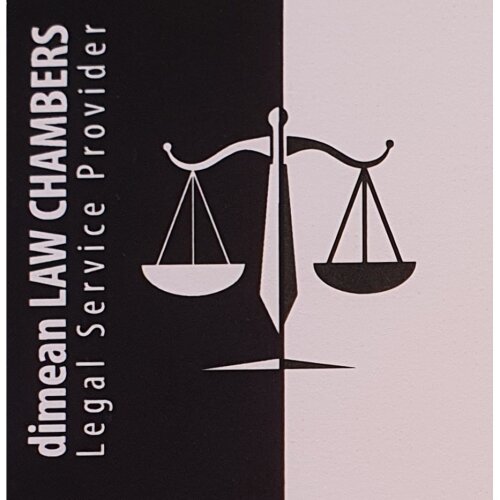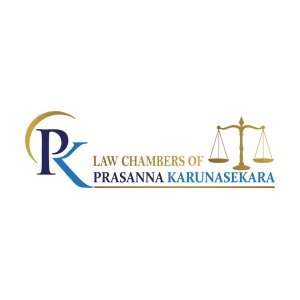Best Child Custody Lawyers in Sri Lanka
Share your needs with us, get contacted by law firms.
Free. Takes 2 min.
Free Guide to Hiring a Family Lawyer
Or refine your search by selecting a city:
List of the best lawyers in Sri Lanka
About Child Custody Law in Sri Lanka
Child custody laws in Sri Lanka are designed to ensure the best interests of the child, taking into account various factors such as the child's welfare, safety, and emotional needs. The main legislative framework governing child custody is rooted in the Matrimonial Causes Ordinance and the Prevention of Domestic Violence Act. Additionally, the principles of Roman-Dutch law, which heavily influence Sri Lankan family law, provide guidelines for custody arrangements. In most cases, courts aim to preserve stability in the child's life, which often means preferring the primary caregiver arrangement, unless evidence suggests another arrangement would better serve the child's interests.
Why You May Need a Lawyer
Seeking legal advice is critical in child custody cases due to the complexities involved. Common situations where legal help is needed include:
- Divorce or separation proceedings where custody needs to be determined.
- Disputes over visitation rights and parental access.
- Concerns over the child’s welfare, requiring possible court intervention.
- Desire to modify existing custody agreements due to changing circumstances.
- International custody disputes, especially when one parent resides outside Sri Lanka.
Having a lawyer can help navigate these scenarios, providing expertise on legal rights and obligations while striving to achieve an arrangement in the child’s best interests.
Local Laws Overview
Key aspects of child custody laws in Sri Lanka include:
- Best Interests of the Child: The overriding principle in custody decisions.
- Joint Custody: Although less common, courts may decide on joint custody if it is beneficial for the child.
- Role of Courts: Family courts have broad discretion in determining custody arrangements.
- Guardianship Act: This act outlines the duties and responsibilities of guardians in Sri Lanka.
- Domestic Violence Considerations: The presence of domestic violence can significantly impact custody rulings.
Frequently Asked Questions
What factors does the court consider in custody decisions?
Court decisions are primarily based on the child's best interests, considering factors like emotional needs, age, parent's ability to care for the child, and any history of family violence.
Can fathers obtain custody of their children?
Yes, fathers can obtain custody if it is deemed in the child's best interest. The court does not automatically favor mothers, especially if evidence supports the father's capability to provide a stable environment.
Is joint custody a possibility in Sri Lanka?
While rarer than sole custody, joint custody is possible when both parents are deemed capable, and it serves the child's best interests.
How does domestic violence affect custody decisions?
Domestic violence is a critical factor and can limit or deny visitation and custodial rights to ensure the child's safety.
What is the process to modify a custody agreement?
Modifying a custody agreement requires demonstrating a significant change in circumstances affecting the child's well-being, and involves filing a petition in family court.
Can grandparents seek custody or visitation rights?
Grandparents may seek custody or visitation, but their rights are secondary to parents. They must provide evidence that such an arrangement benefits the child.
How is international relocation handled in custody cases?
International relocation with a child requires court approval, considering the impact on the child's relationship with both parents.
What are visitation rights?
Visitation rights allow the non-custodial parent or other family members to spend time with the child, structured to support the child's best interests.
Can a child express their preference in custody decisions?
Older children may express their preferences, but the court considers this alongside other factors in determining the best interests of the child.
When should I seek legal assistance in a child custody case?
Legal assistance is advisable when dealing with complex issues such as allegations of abuse, non-compliance with agreements, and any situation where the child's safety is at risk.
Additional Resources
Here are some resources and organizations that can provide assistance:
- The Family Court: Offers guidance on legal proceedings related to family matters.
- The Department of Probation and Child Care Services: Provides resources and support for child welfare.
- Lanka Legal Aid Commission: Offers legal aid services for those unable to afford private representation.
Next Steps
If you need legal assistance in a child custody matter, consider the following steps:
- Consult with a family lawyer specialized in Sri Lankan law for professional legal advice.
- Gather relevant documentation, including any existing custody agreements, court orders, or records of communication.
- Prepare for your consultation by listing questions and concerns you wish to address.
- Consider mediation as a first step to resolve disputes, providing a less adversarial process.
Remember, prioritizing the child's best interests is paramount, and seeking legal counsel early can help protect their welfare and your rights effectively.
Lawzana helps you find the best lawyers and law firms in Sri Lanka through a curated and pre-screened list of qualified legal professionals. Our platform offers rankings and detailed profiles of attorneys and law firms, allowing you to compare based on practice areas, including Child Custody, experience, and client feedback.
Each profile includes a description of the firm's areas of practice, client reviews, team members and partners, year of establishment, spoken languages, office locations, contact information, social media presence, and any published articles or resources. Most firms on our platform speak English and are experienced in both local and international legal matters.
Get a quote from top-rated law firms in Sri Lanka — quickly, securely, and without unnecessary hassle.
Disclaimer:
The information provided on this page is for general informational purposes only and does not constitute legal advice. While we strive to ensure the accuracy and relevance of the content, legal information may change over time, and interpretations of the law can vary. You should always consult with a qualified legal professional for advice specific to your situation.
We disclaim all liability for actions taken or not taken based on the content of this page. If you believe any information is incorrect or outdated, please contact us, and we will review and update it where appropriate.
Browse child custody law firms by city in Sri Lanka
Refine your search by selecting a city.
















